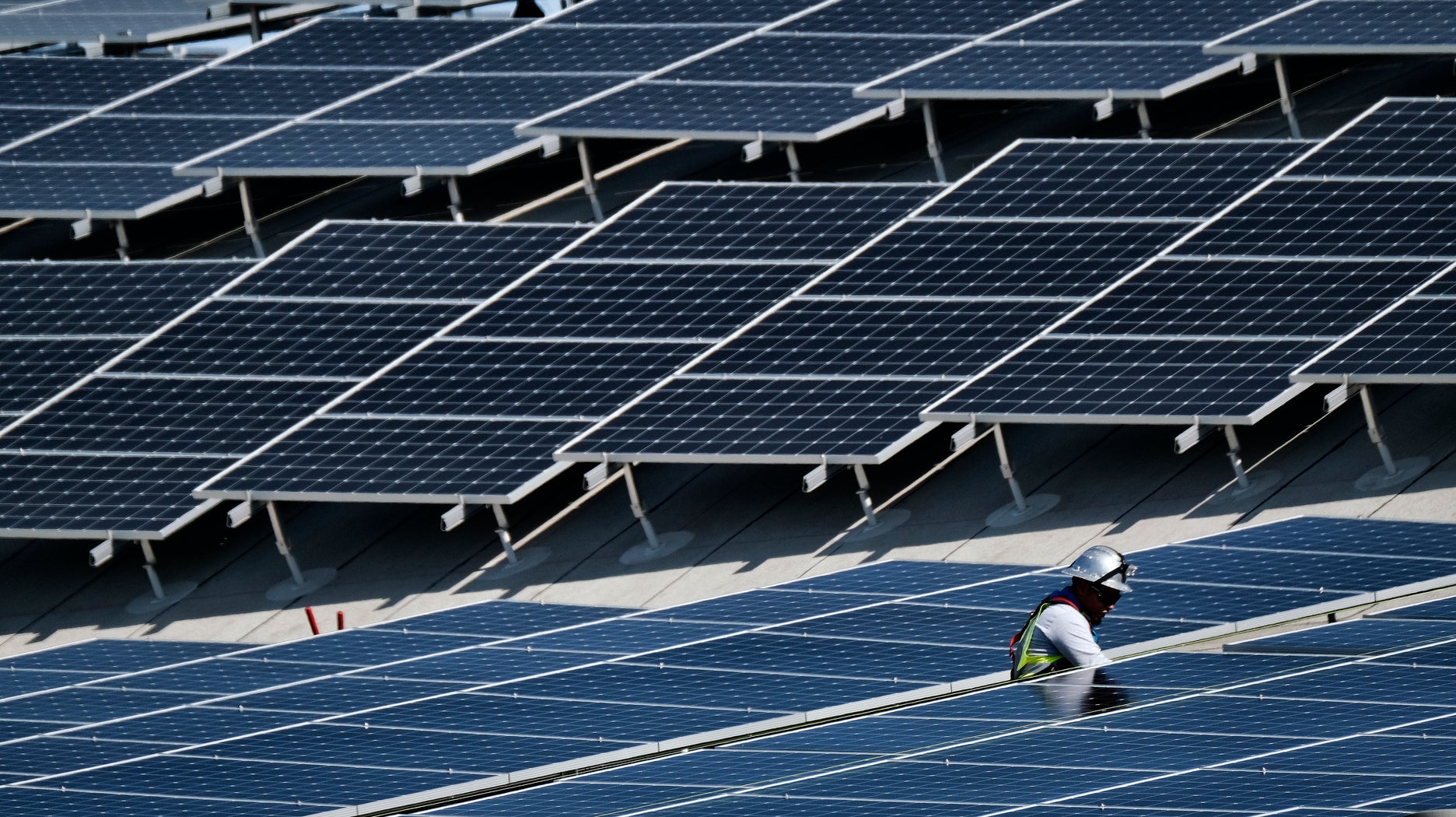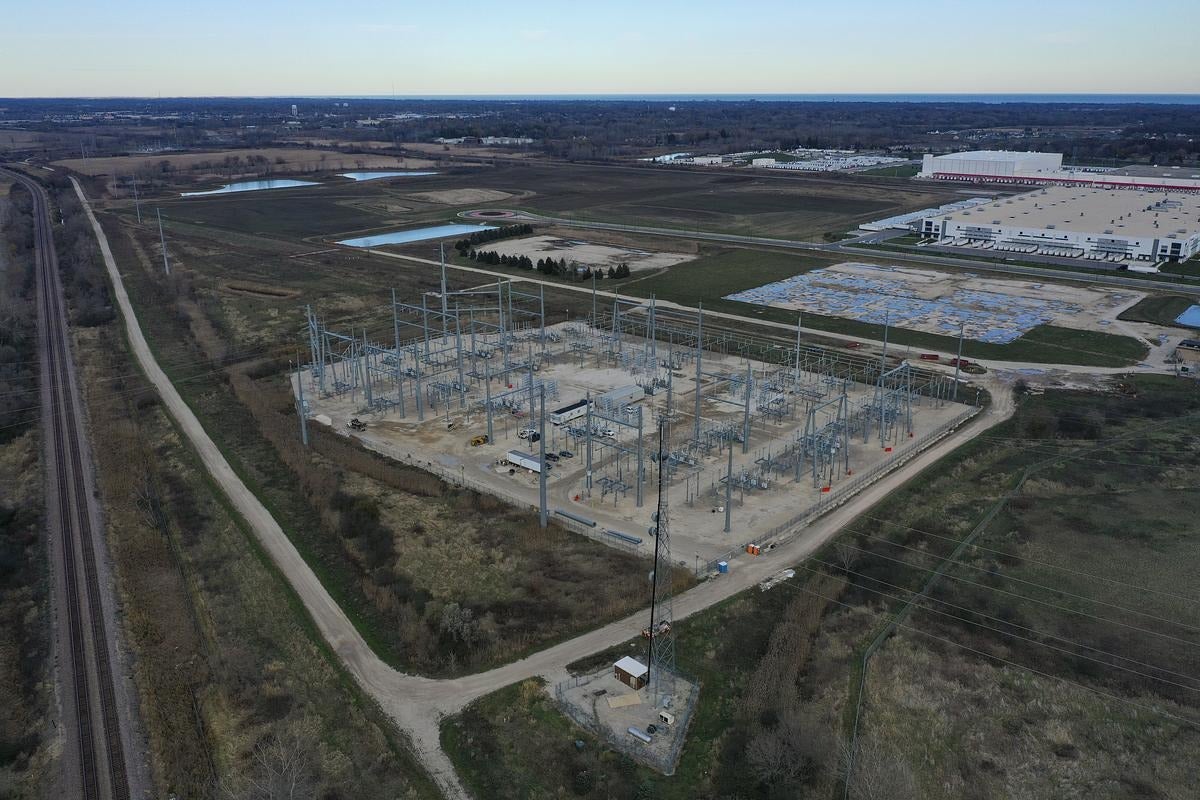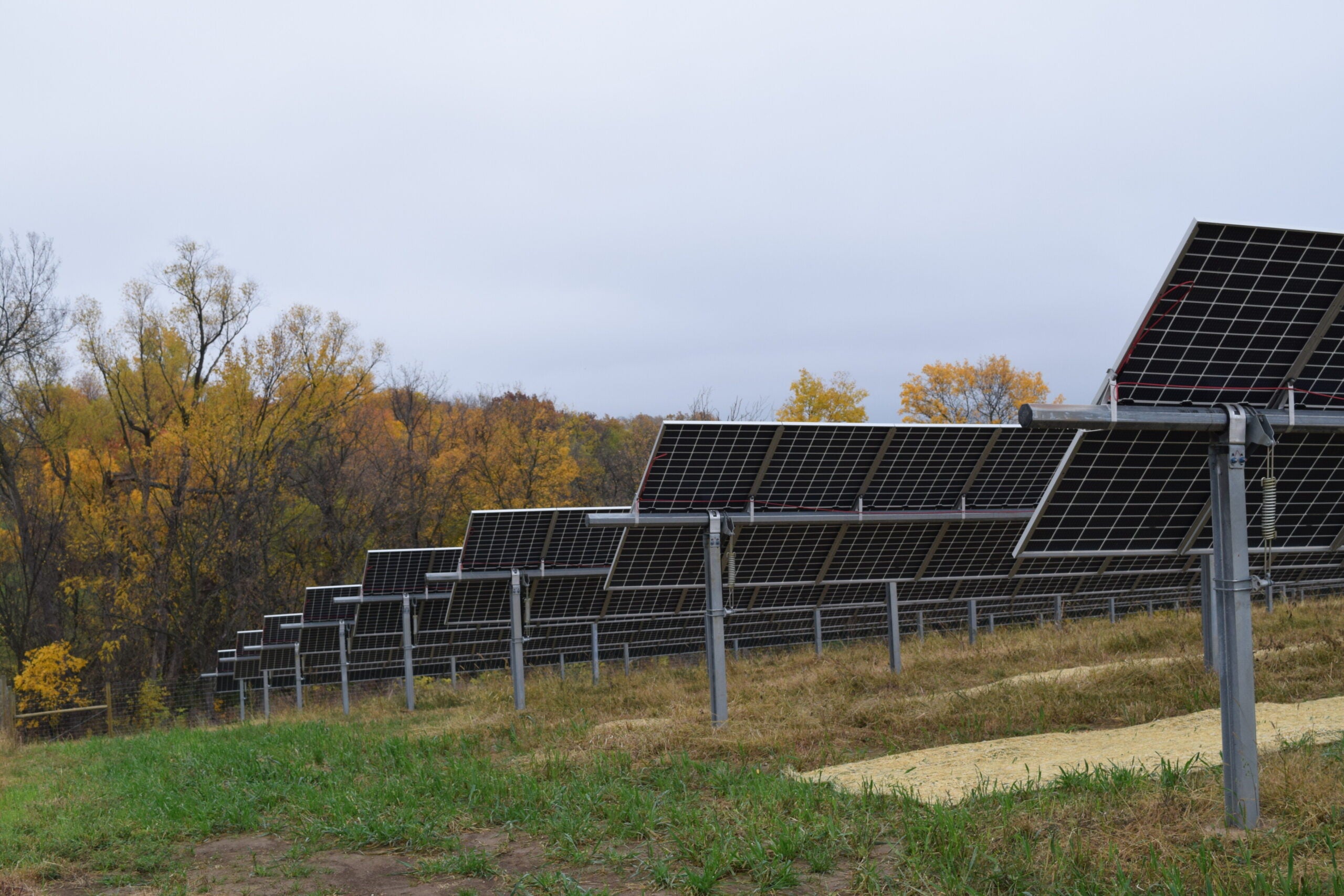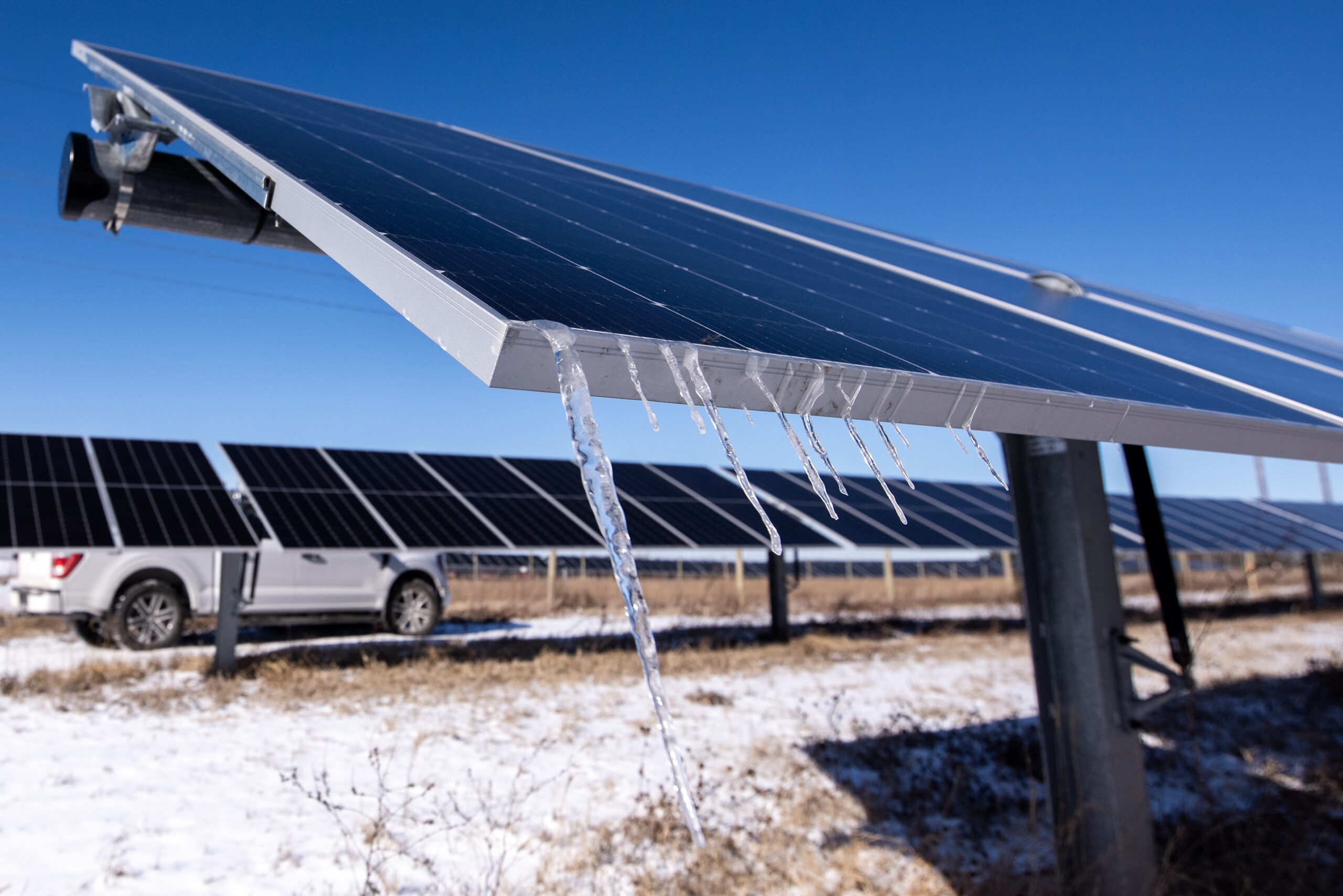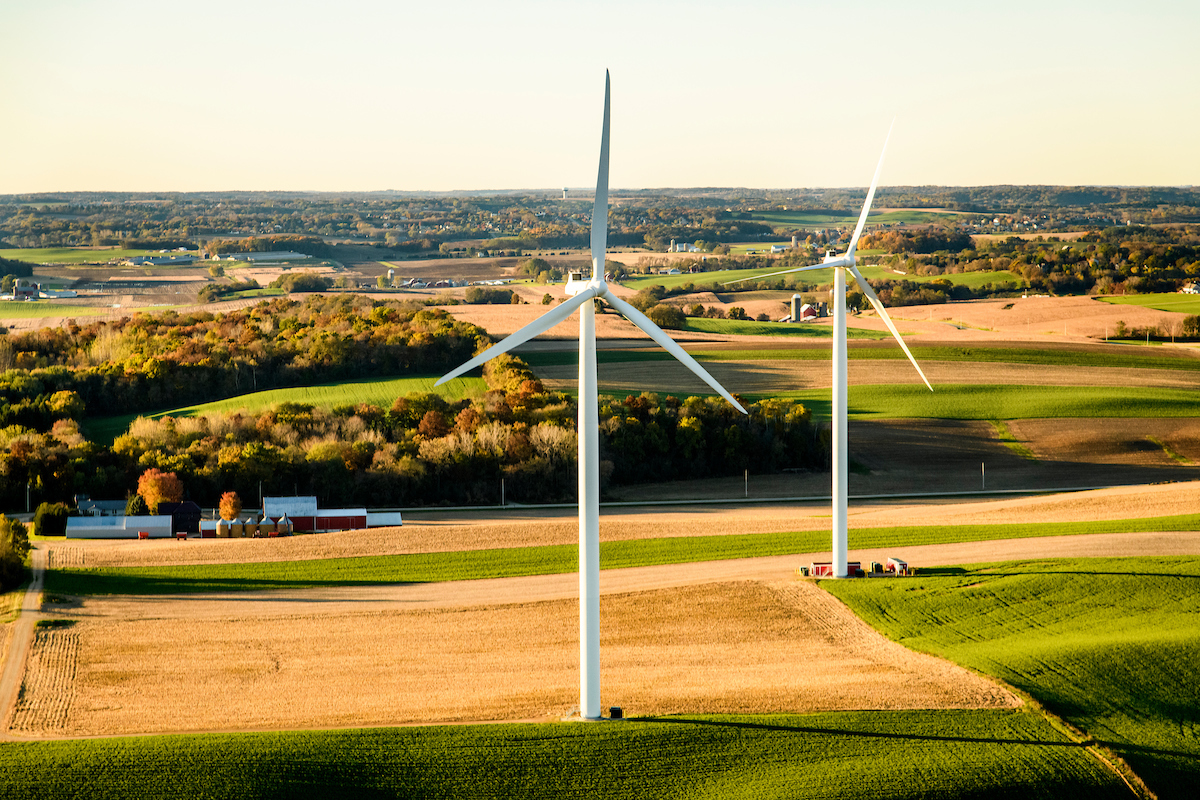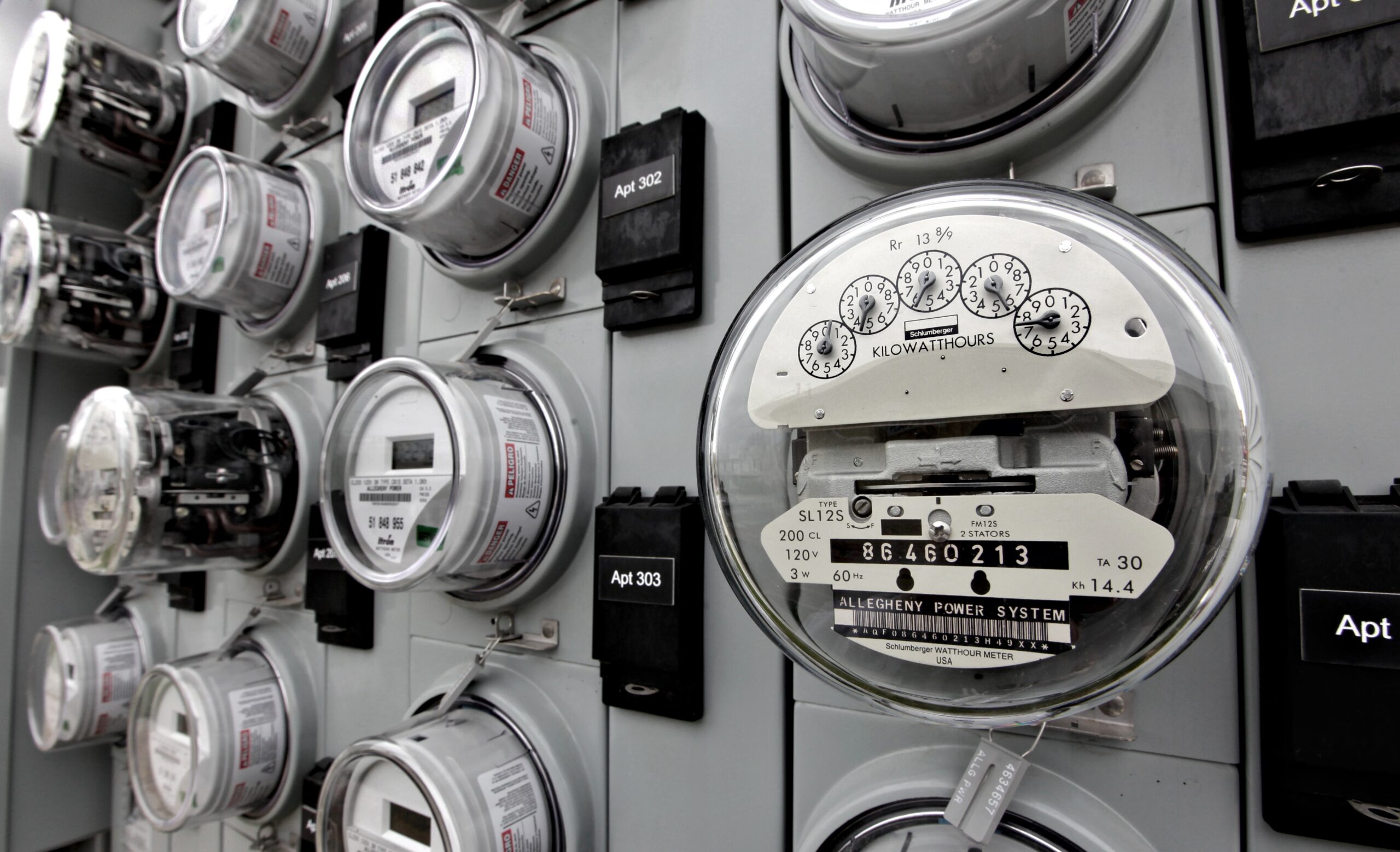A new report by Wisconsin energy stakeholders outlines more than a dozen recommendations on how the state can speed up the clean energy transition in the power sector.
The Milwaukee-based Midwest Energy Research Consortium and Great Plains Institute out of Minneapolis brought together utilities, consumer advocates, businesses and environmental groups in the last year to pinpoint the role technology plays in Wisconsin’s energy distribution and make recommendations to upgrade the electrical system.
The grid is becoming more complex as the system is shifting from delivering electricity from power plants to including distributed energy resources like solar, wind and battery storage, according to Trevor Drake, GPI’s senior program manager.
News with a little more humanity
WPR’s “Wisconsin Today” newsletter keeps you connected to the state you love without feeling overwhelmed. No paywall. No agenda. No corporate filter.
“We should have a framework in place that helps them do that. We should clarify what those goals are and, to the extent we need to allow business model changes for those utilities, we should consider doing that,” said Drake.
The group found utilities are best positioned to provide affordable, reliable power for customers while modernizing the system through new technologies that can spur economic development and reduce their carbon footprint, according to Deb Erwin, member of the stakeholder group and regulatory policy manager for Xcel Energy.
“We need someone sort of overseeing the whole system and calling on those resources when they’re needed most in order to allow them to really maximize the benefits and do everything we can to lower costs for everyone,” said Erwin.
Xcel was the first among major U.S. utilities that pledged to go carbon-neutral by 2050, which is a goal that Gov. Tony Evers mirrored last August. Other utilities have set goals to cut carbon emissions 80 percent by that date.
To accelerate the transition, the group recommended the Wisconsin Public Service Commission should start a new initiative to encourage utilities to expand investment in new technologies through more pilot programs, according to Dan Ebert, the consortium’s executive director and former PSC chair.
“They could be pilots that could be around distributed energy resources. It could be around (battery) storage,” said Ebert. “It can be using technologies to better understand and communicate with customers to help them better manage their energy use.”
Ebert said the recommendation calls for utilities to invest up to $100 million or roughly 1 percent of annual revenues for regulated utilities each year over a five-year period. GPI’s Drake noted the initiative would make it easier for utilities to deploy new technology and provide more certainty that they’ll be able to recover costs as long as they meet pre-established goals set by the commission.
The group also recommended the PSC appoint a committee to update rules on how energy resources can be tied into the electric grid. Wisconsin’s current interconnection rules took effect in 2004, according to Joe Fontaine, the commission’s energy policy advisor.
“They were written well before some of the current technology changes that are becoming important now,” said Fontaine. “Maybe the clearest example is storage. Storage was just not a not a significant consideration for the energy system back in 2004.”
The report also recommended considering programs to reduce customer costs and aligning the state’s Focus on Energy program with utilities’ carbon reduction goals. Scott Blankman, director of energy and air programs for Clean Wisconsin, said avoiding consumption during times of peak demand during the day will play a key role.
“If you’re shifting it away from those time periods, that’s going to be a critical role in being able to help utilities control customer costs on a go-forward basis, particularly for those low-income and multi-family customers and renters who have less opportunities available to them to perhaps control their energy consumption,” said Blankman.
Blankman said that’s become increasingly important during the coronavirus pandemic because people are using more electricity now that they’re staying at home.
Currently, Wisconsin spends and saves less on energy efficiency compared to neighboring states like Minnesota, Illinois, Michigan and Iowa. The report suggests supporting changes to allow the PSC to increase utility contributions to Focus on Energy programs, which provide more than $500 million in economic benefits to the state each year.
“Really optimizing the system in a way that boosts savings for customers and efficiency overall,” said Tom Content, executive director of the Citizens Utility Board.
The group also recommended collaboration among utilities and stakeholders as distribution plans are developed. They would also like to see Wisconsin regulators, utilities and groups take part in rule changes regarding distributed energy resources within the Midcontinent Independent System Operator, which controls and monitors operation of the electric grid in the Midwest.
The recommendations developed by the group are an unusual collaboration, according to Tim Baye, professor of business development and energy finance within the Division of Extension at the University of Wisconsin.
“Typically, the relationship between the utilities, the ratepayers and the regulators is one of a friendly adversary. This is not,” said Baye. “This is a collaboration between all the different stakeholders in trying to articulate a set of recommendations and new practices that allow for innovation to happen and still protect the reliability of the system.”
The report has been submitted to the Public Service Commission for review, and the group will brief Evers’ climate change task force on its findings in the next two weeks.
Wisconsin Public Radio, © Copyright 2025, Board of Regents of the University of Wisconsin System and Wisconsin Educational Communications Board.

